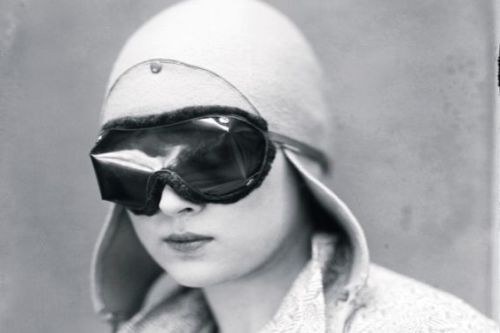The exhibition “Fotografia Wulz. Trieste, la famiglia, l’atelier” (Trieste, the family, the atelier) will open on Friday, 13 December, at 6 p.m. at the Magazzino delle Idee in Trieste and it will run from 14 December 2024 to 27 April 2025. The exhibition offers a photographic journey that spans over a century, reflecting the historical events that brought Trieste at the centre of international attention, as well as the city’s economic, demographic, social, and cultural evolution.
Organised by the Regional Authority for the Cultural Heritage of Friuli Venezia Giulia, the Alinari Foundation in Florence and the Research Centre “Photography, Art and Feminisms” of the University of Bologna, the exhibition presents a historical and critical selection from the Wulz Photography Studio in Trieste (1868–1981), one of the most important collections currently preserved in the Alinari Archives.
Curated by Antonio Giusa and Federica Muzzarelli, Professor at the University of Bologna’s Department of the Arts, the exhibition is part of the “GO!2025 & Friends” event from the “GO!2025 Nova Gorica - Gorizia European Capital of Culture” programme.
The exhibition offers new and revised insights into the Wulz’s photography through the curators’ meticulous selection of works from the Alinari collection and contributions from other institutions — such as the Wolfsoniana in Genoa, the Revoltella Museum, the Civic Museums of History and Art of Trieste, and private collections like Drogheria 28 Antiquarian Bookstore in Trieste and the Sergio Vatta Collection.
Featuring nearly three hundred pieces — photographic prints, negatives, vintage works, documents, and objects from the Wulz Studio archive — the exhibition provides an unprecedented perspective on Trieste during the late 19th to mid-20th century, a crucial period for the evolution of the city.
The images captured during the studio’s later years by sisters Wanda and Marion Wulz showcase the evolving identities of women in the early 20th century, illustrating their journey towards emancipation and independence.
The exhibition is supported by the Calliope Arts Foundation, which is dedicated to preserving and promoting women’s cultural heritage. To mark the occasion, Calliope will also publish a special issue of The Curators’ Quaderno, focusing on the Wulz sisters.
A bilingual catalogue published by Silvana Editoriale will accompany the exhibition, which will also include a series of in-depth events.
For further information.

